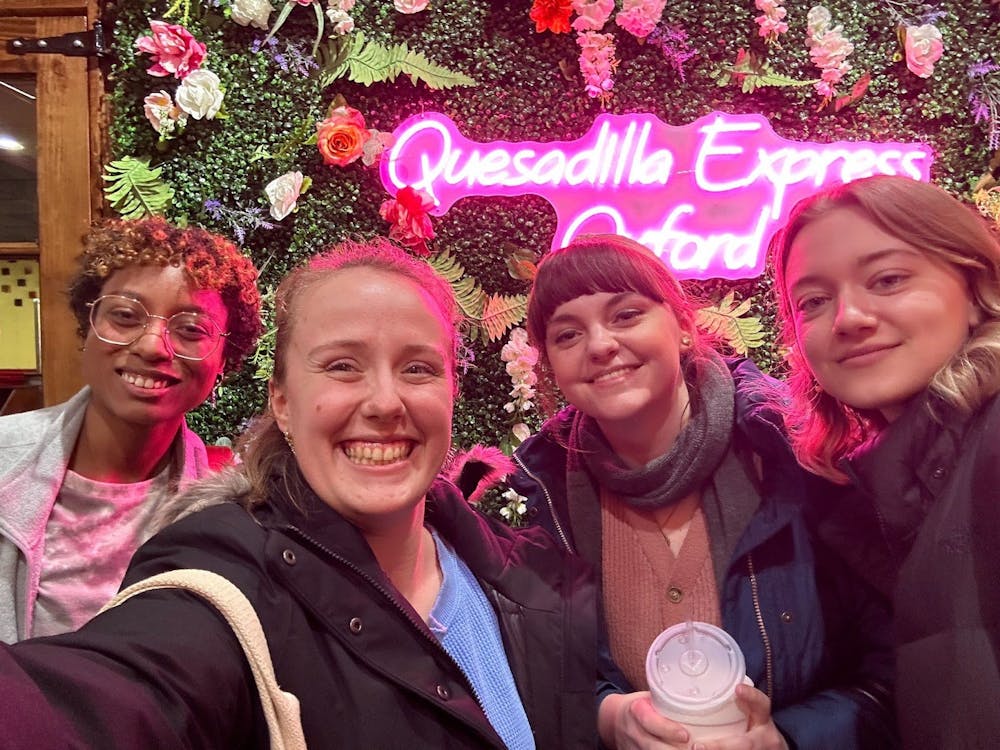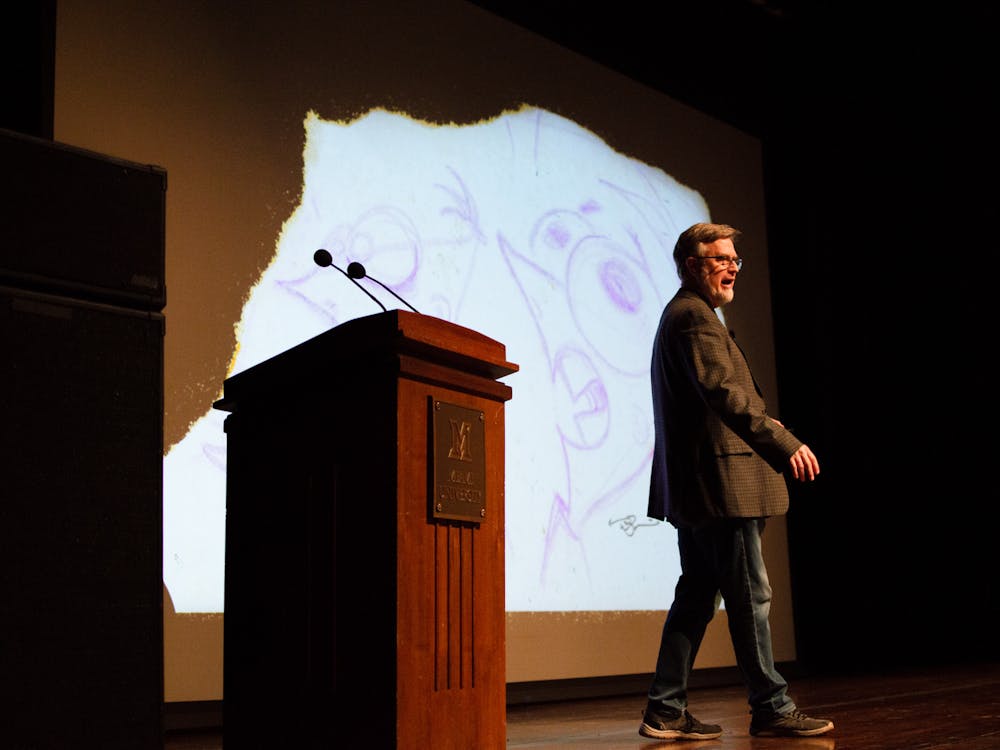By Libby Mueller, Senior Staff Writer
Senior Jordan Griebner started The Wells Project, the college branch of nonprofit organization Living Water International, as a first-year at Miami University. The Wells Project aims to raise awareness and funds toward ending the water crisis for the 730 million people worldwide without access to clean water. When she first started the organization, she never imagined it would bring Ben Rector, a soft rock singer-songwriter, to campus.
The MU Treblemakers opened for Ben Rector, who put on a concert for a roomful of cheering fans on Saturday, Nov. 8. in the Armstrong Student Center Pavilion. But he was not there simply to play good music; he was also kicking off The Wells Project 10 Days Campaign.
"The 10 Days is a really simple campaign where we ask you to sacrifice a little of your own comfort so people can have life-saving clean water," Griebner said. "For 10 days, we challenge you to drink only water and give up that pumpkin spice latte or that afternoon pop and use the money you save from only drinking water to donate to drilling wells in countries without access to clean water."
Griebner, who serves as president of the organization, was inspired to start The Wells Project during her second semester at MU after learning a startling fact over Christmas break.
"I saw a video my freshman year around Christmastime that said Americans spend $450 billion on Christmas every year," Griebner said. "To solve the water crisis, it would take $20 billion. That is just crazy to me that we could give up four percent of what we spend on Christmas every year so that everyone in the world could have clean water to drink. That inspired me to want to do something at Miami."
Since its inception, The Wells Project has sent groups of students to Guatemala and El Salvador to drill wells and has brought artists Phil Wickham and Anthem Lights to campus to raise awareness and donations.
Griebner said she was excited to see the organization grow.
"It has evolved so much," Griebner said. "We have grown and learned a ton. We have a group of students who are dreamers and we make big dreams happen. Each year we've planned bigger concerts, raised more money and reached more people."
The concert raised over $1,800 for clean water, and it was just the beginning. The 10 Days campaign began Monday, Nov. 10, and students all over campus and the nation are saving the money they would normally spend on beverages other than water to donate to The Wells Project and Living Water International.
Senior Julia Schroyer, Event Coordinator and Treasurer of The Wells Project, was with Griebner since the beginning and helped plan the concert this year.
"I've been involved in The Wells Project for three years," Schroyer said. "It started as the passion of one of my friends [Griebner] and grew into a group of passionate people who are dedicated to ending the water crisis."
Enjoy what you're reading?
Signup for our newsletter
Schroyer planned the logistics of the event, which offered free tickets to over 600 people with a suggested donation of $10 to The Wells Project.
"We had about 400 or 500 people for the Anthem Lights concert and we have definitely doubled the amount of people since the Phil Wickham concert," Schroyer said.
Junior Jill Runser, who is also involved in The Wells Project, was excited to see Rector come to campus, but also to raise awareness for the water crisis.
"All his songs have such a good beat," Runser said. "They're upbeat and happy and real. But, I attended both for him and for The Wells Project. I want to support the 10 Days."
Runser said the concerts The Wells Project has hosted have attracted people from far away.
"We bring in pretty popular artists," Runser said. "Anthem Lights is popular, for example. People drove from five or six hours away to come see them and it raised a lot of awareness for The Wells Project that we wouldn't have otherwise had."
Griebner said the goal of The Wells Project is not only to raise awareness and money to end the water crisis, but also to change the way students think about their resources and how they can be reallocated toward solving global issues.
"I hope that we are able to change the culture at Miami and really get people to think outside of these brick buildings and think about the world and the people in this world who are dying because they don't have access to clean water," she said.




